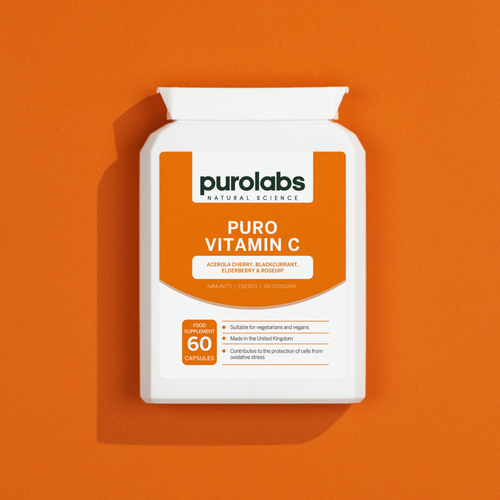Even if you are new to the health and wellness world, you have probably heard of vitamin C. Once upon a time, vitamin C seemed to be the answer to escaping cold and flu season unharmed. However, vitamin C is the Swiss Army knife of nutrients; it affects everything from our blood to skin and even our bones. Let’s dive into the science of vitamin C and why it should be the next addition to your wellness regime.
Vitamin C: 101
Vitamin C is a nutrient that plays an essential role in bodily processes and functions from the top of our heads to the tips of our toes. However, your body does not produce a single drop of vitamin C on its own. Instead, we must rely on our diets to supply us with adequate levels of this nutrient. Additionally, our body does not store extra vitamin C well, so we must ensure we get enough vitamin C each day. The NHS. recommends that adults in the United Kingdom consume at least 40 mg of vitamin C every day. However, if you are older, it is suggested that you increase your daily dosage. A study out of the University of East Anglia revealed that elderly people who regularly consumed high levels of vitamin C had much better skeletal muscle mass than their counterparts. As we age and our bodies lose skeletal muscle mass, we become more prone to frailty, fractures, physical disabilities, and falls. The additional skeletal muscle mass assisted them in living higher-quality, independent lives.
Vitamin C: Benefits and Uses
So you may be thinking, “I’m not elderly yet. I can put off vitamin C.” However, regardless of age, vitamin c is essential for processes occurring in your body at this very moment. If you still are not sold on the idea of upping your vitamin C, the experts at the Mayo Clinic explain all of the roles vitamin c plays in our health, including:
- Forming blood vessels
- Promoting strong muscles
- Improving collagen production
- Iron absorption
- Building and maintaining cartilage
- Supplying antioxidants
- Protecting against heart disease
- Building strong muscles
- Boosting immunity
- Controlling infection
- Hormone production
- Sending messages throughout the body
Dangers of Deficiency
Now that we have explored all of the beneficial reasons to add vitamin C to your routine let’s discuss the dangers of not consuming enough of it.
Certain groups are more susceptible to developing vitamin C deficiencies, including smokers, those experiencing poor gut health, people with limited diets, and low-income families.
The primary concern of vitamin C deficiency is that it leads to scurvy which can be fatal. Additional signs of vitamin C deficiency include:
- Anemia
- Inflamed or bleeding gums
- Slow-healing wounds
- Weakness
- Fatigue
- Joint pain
- Loosening of the teeth
- Hair loss
Conversely, too much vitamin C has its own consequences, such as stomach pain, diarrhoea, and gas. However, medical professionals agree that any dose under 1,000 mg a day should not have adverse side effects.
Top Sources of Vitamin C
Ideally, we would get our entire dose of vitamin C from our perfectly balanced diets. Unfortunately, we have all been guilty, at one time or another, of a lacking diet. Our Puro Vitamin C supplement provides you with 125 mg of vitamin C to help fill in any nutritional gaps left by a less-than-ideal diet.

Vitamin C
Also, as you plan your menu for the upcoming week, try to include vitamin C-rich foods such as:
- Oranges
- Grapefruit
- Berries
- Tomatoes
- Cantaloupe
- Cabbage
- Cauliflower
- Peppers
- Brussels sprouts
- Broccoli, and
- Spinach





















